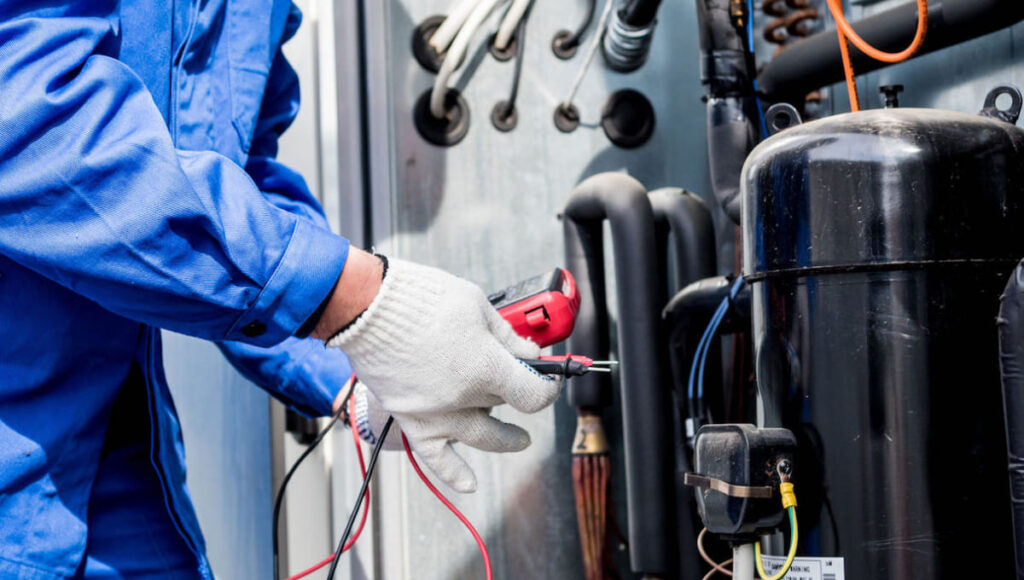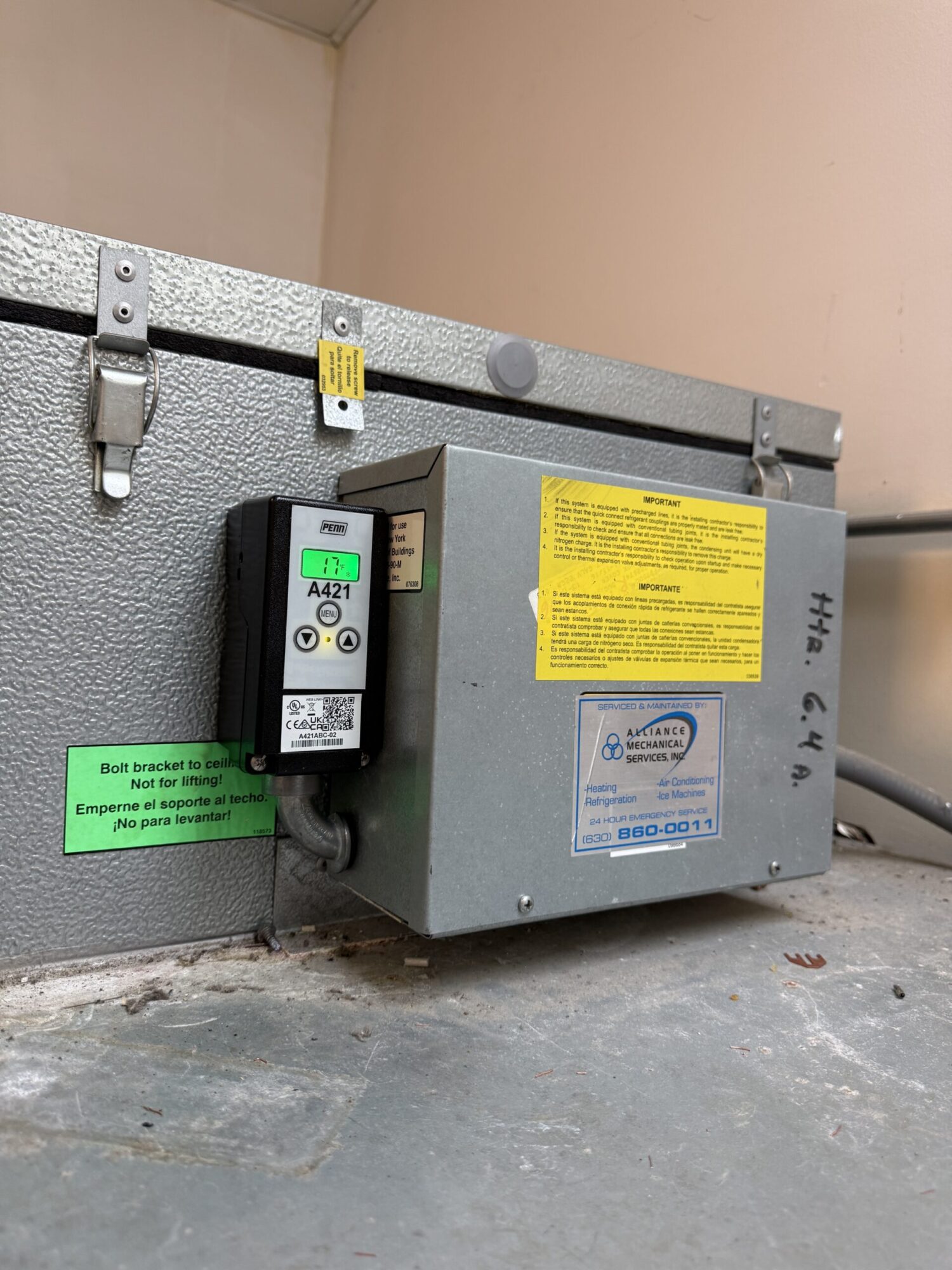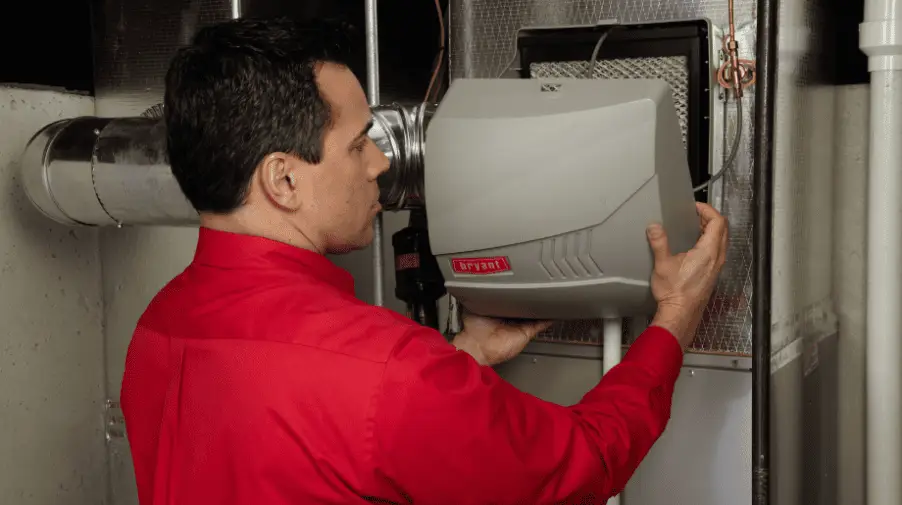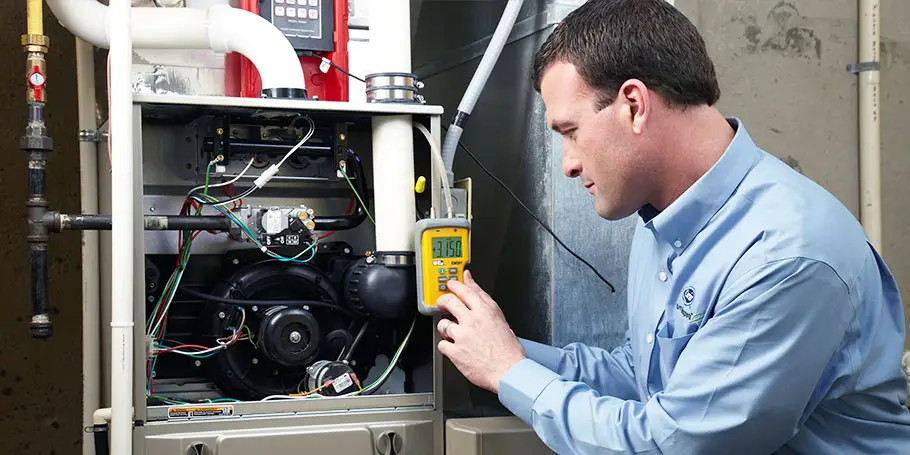Commercial refrigeration equipment is a critical component of businesses in the foodservice, healthcare, and retail industries. Knowing when to replace commercial refrigeration equipment can help prevent costly downtime, inefficient energy consumption, and potential product losses. This guide will explore the signs you need new refrigeration equipment, discuss the cost of repairing vs. replacing refrigeration units, and help you determine the best time to upgrade commercial refrigeration systems.

Signs You Need New Refrigeration Equipment
Recognizing the warning signs of refrigeration failure is crucial to making an informed decision about whether to repair or replace your system. Here are the most common indicators that your refrigeration equipment may be nearing the end of its lifespan.
1. Frequent Breakdowns and Repairs
One of the most obvious signs you need new refrigeration equipment is the increasing frequency of repairs. While occasional maintenance is normal, repeated breakdowns indicate that your unit is struggling to function efficiently.
Solution: If you find yourself calling for repairs multiple times a year, it might be more cost-effective to invest in a new system rather than continuing to patch an aging unit. For a better understanding of commercial refrigeration maintenance, refer to our article on commercial refrigeration maintenance.
2. Inconsistent Temperatures
Maintaining a stable temperature is essential for food safety and product longevity. If you notice fluctuations in temperature, your refrigeration system may be failing.
Common Causes:
- Malfunctioning thermostats
- Refrigeration compressor failure indicators
- Failing door seals
3. Increasing Energy Costs
Older refrigeration units consume more energy as they become less efficient over time. Energy efficiency in aging refrigeration units is a significant factor in determining when to replace commercial refrigeration equipment.
Solution: Monitor your energy bills. If you see a sharp increase in costs without any changes in usage, your refrigeration system may be overworking itself. Learn more about energy efficiency in our article on energy management for commercial refrigeration.
4. Loud or Unusual Noises
A well-functioning refrigeration unit should operate quietly. If you hear strange noises such as buzzing, clanking, or hissing, it could be a sign of a failing compressor or other internal issues.
Solution: Consult a refrigeration specialist to assess the extent of the damage. If major components such as the compressor or motor are failing, a replacement may be the best option.
Refrigeration Equipment Lifespan and Efficiency
Expected Lifespan of Commercial Refrigeration Units
The average lifespan of commercial refrigeration equipment ranges between 10 to 15 years. However, factors such as usage, maintenance, and environmental conditions can impact longevity.
How to Know If Your Fridge Needs Replacing
- If your unit is over 10 years old and experiencing frequent issues, consider replacing it.
- If repair costs exceed 50% of a new unit’s price, replacement is more economical.
- If outdated technology is affecting efficiency, upgrading to an energy-efficient model can save on operational costs.
Cost of Repairing vs. Replacing Refrigeration Equipment
Deciding between repairing and replacing your refrigeration unit involves a cost-benefit analysis. While repairs may seem like a cheaper option in the short term, ongoing maintenance expenses can add up.
Factors to Consider:
- Age of Equipment: Older units are less energy-efficient and prone to failure.
- Frequency of Repairs: Frequent breakdowns indicate that replacement may be more cost-effective.
- Operational Efficiency: Newer models come with advanced technology that reduces energy costs.
For expert advice on commercial refrigeration replacements, consult our commercial refrigeration specialists.
Best Time to Upgrade Commercial Refrigeration
Upgrading your refrigeration system at the right time can prevent unexpected failures and financial loss.
When Should You Upgrade?
- During planned business renovations to avoid unnecessary disruptions.
- Before peak business seasons to ensure optimal performance.
- When energy costs start to rise due to outdated equipment.
To determine how often your refrigeration units should be serviced, refer to our article on how often commercial refrigeration units should be serviced.
Common Signs of Failing Commercial Refrigeration Units
The following are red flags that indicate your refrigeration system is failing:
- Spoiled food due to inconsistent cooling
- Ice buildup in compartments
- Leaking refrigerant or water
- Unresponsive controls or faulty displays
For a list of common refrigeration issues, read our guide on top common issues with commercial refrigerators.
Upgrade vs. Repair Refrigeration Equipment
Determining whether to repair or replace refrigeration equipment depends on several factors. Here’s a simple guide:
| Condition | Repair or Replace? |
| Minor component failure (thermostat, fan motor) | Repair |
| Major component failure (compressor, evaporator coil) | Replace |
| Energy costs significantly increasing | Replace |
| Unit older than 10-15 years | Replace |
| Frequent breakdowns | Replace |
| Minor seal or gasket issues | Repair |
If your refrigeration unit shows any of the above warning signs, consult professionals to assess whether you need a replacement. For early signs of failure, check out our article on early signs your commercial refrigerator needs servicing.
Conclusion
Knowing when to replace commercial refrigeration equipment can save businesses from costly disruptions and inefficiencies. By understanding the signs you need new refrigeration equipment and evaluating the cost of repairing vs. replacing refrigeration systems, you can make informed decisions about your investment.
If you’re considering an upgrade, contact our commercial refrigeration specialists for expert advice. Keeping your equipment up to date ensures efficiency, reliability, and cost savings in the long run.
- Signs You Need New Refrigeration Equipment: Recognizing signs such as frequent repairs, inconsistent temperatures, rising energy costs, loud noises, and physical damage can indicate your refrigeration system needs replacement.
- Refrigeration Equipment Lifespan and Efficiency: Commercial refrigeration units typically last 10 to 15 years, but factors like usage and maintenance influence their longevity and efficiency.
- Cost of Repairing vs. Replacing Refrigeration Equipment: Deciding whether to repair or replace involves analyzing costs, with older units or frequent repairs favoring replacement for long-term savings.
- Best Time to Upgrade Commercial Refrigeration: Upgrade during planned renovations, before peak seasons, or when energy costs increase to prevent unexpected failures and maximize efficiency.
- Common Signs of Failing Commercial Refrigeration Units: Indicators include spoiled food, ice buildup, refrigerant leaks, and unresponsive controls, signaling that the unit may be failing and need attention.
What are the key signs that my commercial refrigeration unit is failing?
Signs of failure include spoiled food due to inconsistent cooling, ice buildup, refrigerant leaks or water leakage, and unresponsive controls or faulty displays indicating internal issues.
When is the best time to upgrade commercial refrigeration equipment?
The optimal time to upgrade is during planned renovations, before peak business seasons, or when energy costs rise due to outdated equipment, ensuring efficiency and preventing unexpected failures.
Should I repair or replace my commercial refrigerator?
Deciding whether to repair or replace depends on factors such as the age of the unit, repair costs, energy efficiency, and the frequency of breakdowns; generally, older units and those with frequent issues are more cost-effective to replace.
How long do commercial refrigeration units typically last, and what affects their lifespan?
The average lifespan of commercial refrigeration units is between 10 to 15 years, but usage, maintenance, and environmental conditions can significantly affect their longevity and efficiency.
What are the common signs indicating I need new refrigeration equipment?
Common signs include frequent breakdowns and repairs, inconsistent temperatures, rising energy costs, loud or unusual noises, and physical damage like refrigerant leaks or ice buildup.



